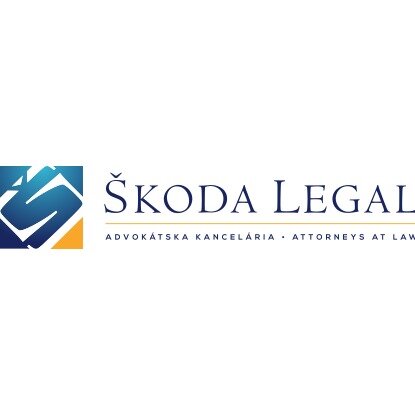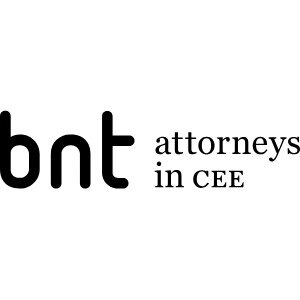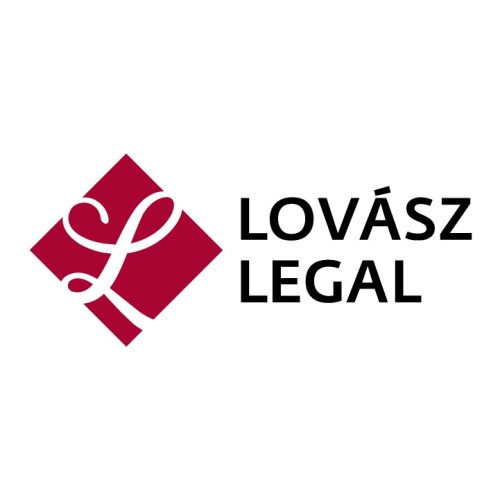Best Energy, Environment & ESG Lawyers in Slovakia
Share your needs with us, get contacted by law firms.
Free. Takes 2 min.
Or refine your search by selecting a city:
List of the best lawyers in Slovakia
About Energy, Environment & ESG Law in Slovakia
Energy, Environment & ESG (Environmental, Social, and Governance) law in Slovakia covers the regulations and legal frameworks that guide the use of natural resources, environmental protection, sustainable development, and corporate responsibility. As Slovakia is a member of the European Union, its national laws are aligned with EU directives and regulations, creating a complex network of rules for businesses and individuals involved in energy production, environmental conservation, and ESG compliance. This area of law encompasses traditional energy sectors, renewable energy, environmental impact assessments, waste management, pollution control, carbon neutrality, and standards for corporate initiatives that advance sustainable and ethical practices.
Why You May Need a Lawyer
There are several situations where you might need help from a legal expert in Energy, Environment & ESG law in Slovakia. Typical scenarios include:
- Starting or expanding a business in energy production, distribution, or renewable energy projects
- Obtaining permits or licenses for activities that impact the environment, such as manufacturing, mining, or construction
- Facing inspections, fines, or enforcement actions for environmental violations
- Dealing with disputes over land use, pollution, or environmental damage
- Implementing ESG programs or disclosing ESG-related information to comply with EU or Slovak regulations
- Participating in public procurement with sustainability requirements
- Defending or pursuing claims related to environmental harm or regulatory compliance
- Navigating renewable energy subsidies or incentives
- Drafting contracts with environmental, social, or governance components
An experienced lawyer can ensure your operations are compliant, help you understand your legal obligations, and represent your interests in negotiations or legal proceedings.
Local Laws Overview
The legal landscape for Energy, Environment & ESG in Slovakia is based on a combination of domestic statutes and regulations, as well as binding EU standards. Key areas include:
- Energy Law - Regulated primarily by the Energy Act and related decrees, covering the production, transmission, and distribution of electricity and gas, as well as support for renewables. Slovakia's energy sector is transitioning toward low-carbon sources in line with EU goals.
- Environmental Protection - The Act on Environmental Protection governs pollution control, waste and water management, protection of natural habitats, and requirements for environmental impact assessments (EIA) for significant projects.
- Climate Change and Carbon Reduction - Emissions trading and carbon reduction commitments are part of Slovakia's obligations to meet EU climate targets, with specific policies on emission limits and energy efficiency.
- ESG Regulation - Businesses, especially publicly traded or larger companies, must comply with non-financial reporting duties. Slovakia is adopting EU policies like the Corporate Sustainability Reporting Directive and sustainable finance regulations.
- Permits and Licensing - Various environmental and operational permits are required before commencing activities that impact air, water, land, or biodiversity.
- Public Participation - Slovak law provides opportunities for public input in environmental decision-making, including the right to comment on major developments and access to environmental information.
Non-compliance can result in penalties, business disruptions, or reputational harm, so understanding the legal requirements is crucial.
Frequently Asked Questions
What permits are required for starting an energy project in Slovakia?
You will likely need an energy license from the Regulatory Office for Network Industries, along with various environmental permits from relevant authorities. Your exact requirements depend on project size, location, and type of energy involved.
How do I ensure my business complies with environmental regulations?
Stay informed about applicable Slovak and EU environmental laws. Regularly assess your operations, obtain all required permits, conduct monitoring as mandated, and establish internal procedures for managing compliance.
What are my obligations regarding ESG reporting?
If your business exceeds certain thresholds for number of employees, turnover, or total assets, or is traded on regulated markets, you must report on your environmental, social, and governance practices under Slovak and EU non-financial disclosure rules.
Can citizens or organizations participate in environmental decision-making?
Yes, individuals and groups can comment on environmental permit proceedings and access public documents about proposed projects. In many cases, they may challenge decisions in court if legal standing requirements are met.
What happens if I violate environmental laws?
Violations can result in administrative fines, mandatory remediation, business restrictions, or, in some cases, criminal liability. The severity depends on the nature and consequences of the infraction.
Are there incentives for renewable energy in Slovakia?
Yes, the government provides support mechanisms for renewable energy, such as feed-in tariffs and auctions for new capacities. Incentives change frequently, so it is important to check the current regulations.
What is an Environmental Impact Assessment (EIA) and when is it needed?
An EIA is a mandatory evaluation for certain projects that could significantly affect the environment. The process includes public participation and ensures that environmental concerns influence project design and approval.
How does Slovakia enforce anti-pollution laws?
Enforcement is carried out by environmental inspection bodies through regular audits, site visits, and investigation of complaints. Sanctions are imposed for breaches, and corrective actions may be mandated.
How can companies integrate ESG into their business strategies?
Companies can develop ESG policies, set measurable targets, train staff, monitor performance, and report transparently. Legal advice can help align these actions with Slovak and EU regulations and best practices.
Who do I contact if I have concerns about environmental damage in my area?
You can report environmental concerns to local environmental authorities, the Slovak Environmental Inspectorate, or, in some cases, the police if criminal conduct is suspected.
Additional Resources
Several organizations and governmental bodies offer guidance and oversight related to energy, environmental protection, and ESG matters in Slovakia:
- Ministry of Environment of the Slovak Republic - Primary authority for environmental policy, permitting, and information
- Regulatory Office for Network Industries (URSO) - Supervises the energy sector and issues operational licenses
- Slovak Environmental Inspectorate - Responsible for monitoring compliance and investigating environmental violations
- Public Health Authority - Monitors health aspects of environmental issues
- Slovak Business Agency - Offers guidance for implementing ESG practices in SMEs
- Various non-governmental organizations focused on environmental advocacy, transparency, and sustainable development
Next Steps
If you need legal assistance in Energy, Environment & ESG in Slovakia, consider these steps:
- Identify your specific legal concerns and gather relevant documents or context (permits, correspondence, project plans, etc.)
- Contact a qualified Slovak lawyer or a law firm with expertise in energy, environment, or ESG matters
- Schedule a consultation to discuss your issue, ask about their experience, and clarify fees in advance
- Follow your lawyer's advice for communicating with public authorities, submitting applications, or responding to legal challenges
- Stay proactive - regulations and policies can change quickly, especially in fields shaped by EU law, so maintain ongoing legal support if your activities are complex or high profile
With proper legal guidance, you can safeguard your operations, manage risks, and contribute positively to sustainable development in Slovakia.
Lawzana helps you find the best lawyers and law firms in Slovakia through a curated and pre-screened list of qualified legal professionals. Our platform offers rankings and detailed profiles of attorneys and law firms, allowing you to compare based on practice areas, including Energy, Environment & ESG, experience, and client feedback.
Each profile includes a description of the firm's areas of practice, client reviews, team members and partners, year of establishment, spoken languages, office locations, contact information, social media presence, and any published articles or resources. Most firms on our platform speak English and are experienced in both local and international legal matters.
Get a quote from top-rated law firms in Slovakia — quickly, securely, and without unnecessary hassle.
Disclaimer:
The information provided on this page is for general informational purposes only and does not constitute legal advice. While we strive to ensure the accuracy and relevance of the content, legal information may change over time, and interpretations of the law can vary. You should always consult with a qualified legal professional for advice specific to your situation.
We disclaim all liability for actions taken or not taken based on the content of this page. If you believe any information is incorrect or outdated, please contact us, and we will review and update it where appropriate.
Browse energy, environment & esg law firms by service in Slovakia
Slovakia Attorneys in related practice areas.
Browse energy, environment & esg law firms by city in Slovakia
Refine your search by selecting a city.














